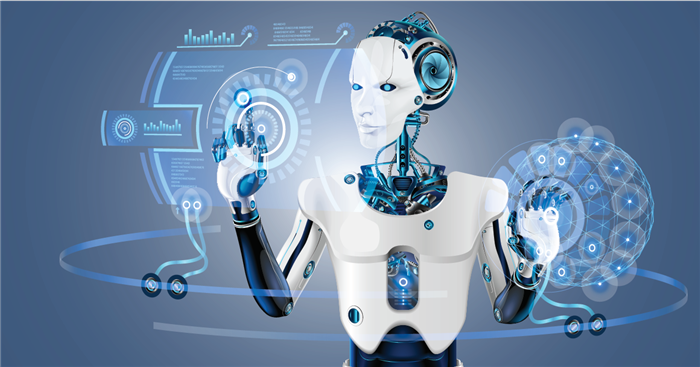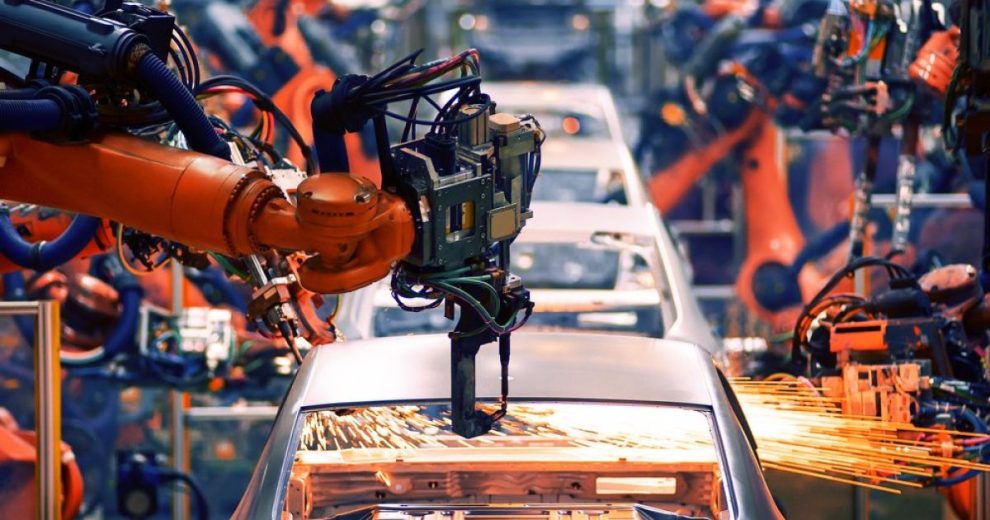The factory floor is undergoing a revolution, and the driving force is artificial intelligence (AI). No longer relegated to science fiction, AI is rapidly transforming the manufacturing landscape, bringing automation, predictive maintenance, and enhanced quality control to the forefront. Let’s delve into these three key areas and explore how AI is optimizing and revolutionizing the way we manufacture goods.

Automation on Steroids:
Repetitive tasks that bog down production lines are prime targets for AI-powered automation. Robotic Process Automation (RPA) bots handle tasks like machine tending, palletizing, and assembly, freeing up human workers for more strategic roles. Imagine a production line where robots seamlessly collaborate with human technicians, handling tedious tasks with precision and efficiency.
The benefits are clear: increased productivity, reduced labor costs, and improved safety. With AI-powered automation, manufacturers can optimize production flow, minimize downtime, and ensure a consistent output of high-quality products.
Predicting the Future: Preemptive Maintenance:
One of the most exciting applications of AI in manufacturing is predictive maintenance. By analyzing sensor data from machines and equipment, AI algorithms can identify potential failures before they occur. This allows for proactive maintenance, preventing costly breakdowns, production delays, and safety hazards.
Imagine a factory where machines are constantly monitored by AI, sending alerts when maintenance is needed. This not only minimizes downtime but also extends the lifespan of equipment, maximizing return on investment.
Seeing is Believing: Enhanced Quality Control
AI-powered vision systems are revolutionizing quality control in manufacturing. These systems can inspect products with superhuman precision, detecting even the tiniest flaws that might escape the human eye. Imagine a production line where cameras equipped with AI algorithms scan every item, ensuring flawless quality and minimizing customer returns.
The benefits of AI-powered quality control are vast: reduced waste, improved product consistency, and enhanced brand reputation. Manufacturers can now guarantee the highest quality standards, building trust with customers and gaining a competitive edge.
The Future of Manufacturing:
The integration of AI is not just transforming individual processes; it’s leading to the development of smart factories. These factories leverage AI and other advanced technologies to create a connected and intelligent ecosystem, optimizing every aspect of production from raw materials to finished products.
The human element, however, remains crucial. AI is not a replacement for human ingenuity and expertise. Instead, it serves as a powerful tool that complements and enhances human capabilities, empowering workers to make data-driven decisions, solve complex problems, and drive continuous improvement.
Conclusion:
AI is not just the future of manufacturing; it’s the present. By embracing AI and its transformative potential, manufacturers can unlock new levels of efficiency, quality, and safety, paving the way for a more sustainable and prosperous future. The journey towards an AI-powered manufacturing landscape is underway, and those who embrace this technology stand to thrive in the ever-evolving industrial landscape.
















Add Comment